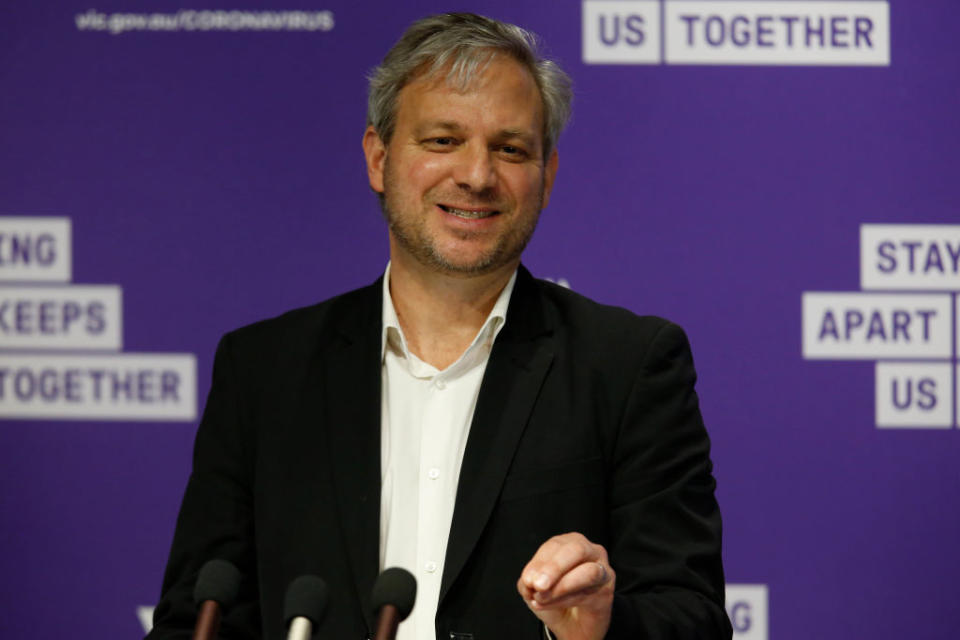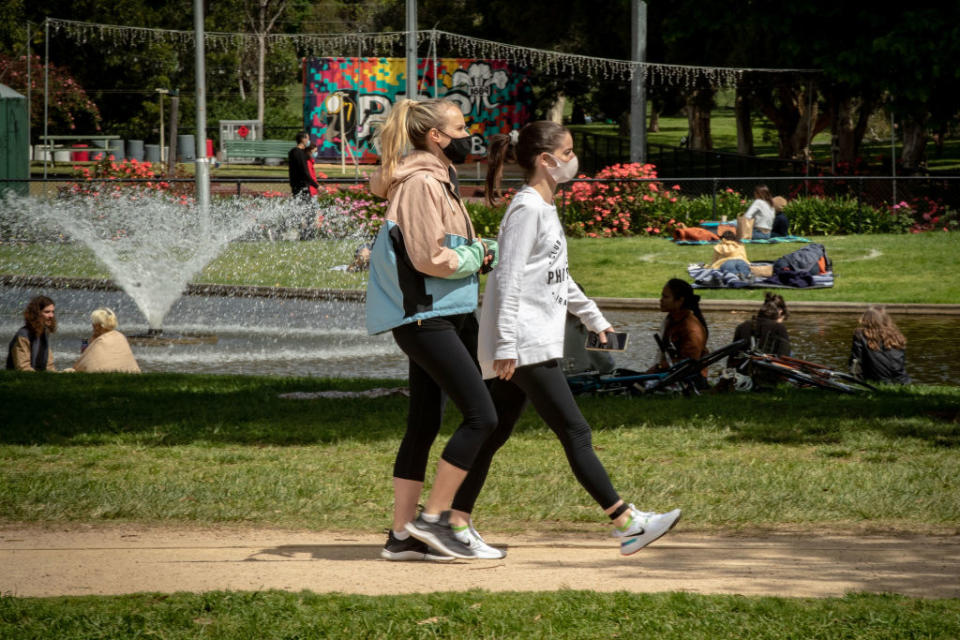The main threat to Australia enjoying a Covid-free summer
“It’s absolutely possible.”
That was the response of Victoria’s Chief Health Officer, Brett Sutton, on Friday when asked if Australia could completely eradicate local cases of coronavirus.
Three days and zero new cases for Victoria later, optimism continues to grow that the virus may be wiped out of the community heading into summer.
And that hope was only intensified on Sunday when the nation reported its first day of no community transmission cases since June 9. NSW reported only one case of community transmission of coronavirus on Monday.
Congratulating the nation, Prime Minister Scott Morrison urged Australians to “keep it that way” on Twitter.

While the federal government and state leaders have repeatedly stressed the nation’s unified response to the pandemic is a suppression strategy, many of the nation’s top politicians – and medical experts – have routinely reminded the public eradication could well be a by-product.
Professor Archie Clements, epidemiologist and pro vice-chancellor of the Faculty of Health Sciences at Curtin University, believes Australia can achieve such a phenomenon.
In April he predicted the nation would reach eradication of the virus yet just months later Victoria began its devastating second wave.
Infected returning travellers pose greatest risk
On Monday, he told Yahoo News Australia it is still possible more than half a year and over 20,000 cases later, however Australians cannot expect to enjoy periods of 100 or even 200 days without the virus locally – scenarios that have been experienced by New Zealand and Taiwan respectively.
“The caveat is that we’re continuing to have infected people entering the country and that number is only going to increase throughout the winter as the pandemic really takes off throughout the northern hemisphere,” he said.
Earlier this month, Mr Morrison committed to bringing back more than 26,000 Australian citizens before Christmas, with Western Australia and Queensland accepting nearly 300 arrivals combined in November.
In October, NSW brought back 135 Australians who tested positive to the virus. In September, that figure was just 74.
Strong border biosecurity the key to virus eradication
“Bringing people in is fine as long as our biosecurity processes operate well but what happened in Victoria it seems there was a breakdown,” Prof Clements said.
“In theory we can achieve eradication in the community but we’ll have to rely on very strong border biosecurity and just be aware breakdowns can happen and if that’s the case then we end up having a new epidemic.”

Dr Norman Swan, the physician who has been the face of the ABC’s coronavirus coverage, agreed saying on Monday the increase in returned travellers was a “major risk”.
“Even though we've done very, very well with hotel quarantine, the unfortunate situation in Victoria an exception, there's still a risk and what Western Australia has seen, freighters arriving with people with COVID-19 on board, you just can't let up at all and it could get into the community,’ he said.
Prof Clements said the risk needed to be mitigated with the need for a “tight and probably fairly expensive” biosecurity system put in place.
He said states need to find innovative solutions to reduce the risk of a breakdown, pointing to Western Australia’s utilisation of Rottnest Island in quarantining cruise ship arrivals.
“There needs to be innovative solutions that recognise our natural advantage of isolation and their ability to put people in locations where they don’t come into contact with the rest of the community,” he told Yahoo News Australia.

Australia could eradicate the virus ‘multiple times’
Prof Clements believes with Victoria’s rapid decline to zero daily cases after a stubborn tail end of its second wave, eradication could come “very quickly”.
But he said it was unlikely the nation would see out a long periods without COVID-19 in the community.
“It may happen on multiple occasions, it might be that we eradicate it and then there’s a breakdown by biosecurity, there’s an outbreak, we get on top of it and then we eradicate it again.
“That pattern is highly likely I’d say until there’s high levels of population immunity as a result of a vaccine.”
He said while Australians will be able to lead a “relatively normal life” once eradicating the virus, some restrictions, such as those on large capacity events, would need to remain in place until a vaccine arrives.
Do you have a story tip? Email: newsroomau@yahoonews.com.
You can also follow us on Facebook, Instagram and Twitter and download the Yahoo News app from the App Store or Google Play.




